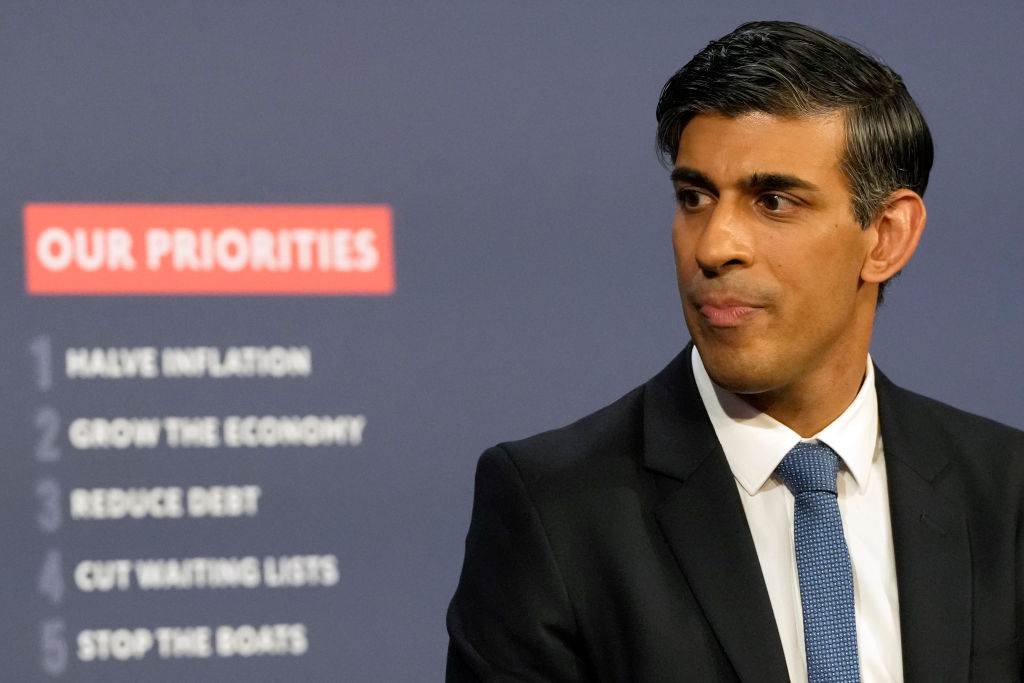Spreadsheet Sunak won’t win an election if he can’t meet his own scorecards

From stopping the boats to driving down inflation and cutting NHS waiting lists, Sunak has failed to meet his own targets and voters won’t keep believing him writes John Oxley
Six months have now passed since Rishi Sunak’s big relaunch and the inauguration of his five goals. For a prime minister fond of business speak and performance indicators, his scorecard seems pretty dismal. With the election inching ever closer, this will only serve to undermine his and his party’s credibility.
In the last week, his most prominent pledges have both suffered significant setbacks. The Court of Appeal ruled against the government’s plans to deport asylum seekers to Rwanda, while updated figures showed inflation was remaining stubbornly high. With little progress made on the other promises around cutting NHS waiting lists, growing the economy and reducing the national debt, Sunak is starting to look impotent.
This compounds the image problems he inherited from his predecessors – both in terms of policy and optics. The Conservatives have now had thirteen years in power and will be judged far more on delivery than promises. Failing on the former hamstrings the appeal of the latter.
There are two key parts of winning elections. The first is offering the sort of things the public wants. The second is convincing people you can actually deliver them. The Tories have managed the first for four elections, but have now exhausted themselves on the second. A raft of policies have floundered, more petering out than levelling up. With each disappointment it becomes harder to pull the same trick again.
Political campaigning is essentially a specialist form of marketing, and functions in a similar way. Bold sales pitches can win you interest, but if you fail to deliver that is all for naught. The Tories are seeing this now as their polls decline.
The danger is that voters simply don’t believe that the Conservatives can get stuff done. That no matter what they say, or aim for, the same drift and malaise will consume them, leading to more squandered opportunities and wasted potential. If there is no belief that you will follow through, even your staunchest supporters grow fatigued.
For the party, the danger is that this drift continues to a point where voters switch off entirely. Once you are no longer trusted to deliver, your pledges start to matter even less. They are mere puff in the eyes of the punters, something you are saying simply to lure them in. Cynicism starts to undermine every issue you talk about.
The Conservatives have around a year until the next election. That puts them in an invidious position. It is, in Westminster terms, not a lot of time to get stuff done. Things that require real heavy lifting, especially laws that must pass both Houses and then be implemented, aren’t going to have much effect. It is, however, far too long to be running down the clock, especially with an adverse economic situation.
Sunak has to find a way to build momentum. So far he has struggled to get on top of his self-appointed goals, as well as backing down when any action seems to generate a fight with his own party. If he is to stand a chance at the next election, he needs to show he has the determination, the mettle and the plan to get the results.
If he wants to have any hope of convincing the electorate, he needs to find some quick wins and show he’s busting a gut on the harder stuff. Otherwise, he runs the risk of looking like the latest incarnation of a party that habitually overpromises and underdelivers. It’s hard to get repeat business that way, and will likely prove impossible to win a fifth election on the trot.
